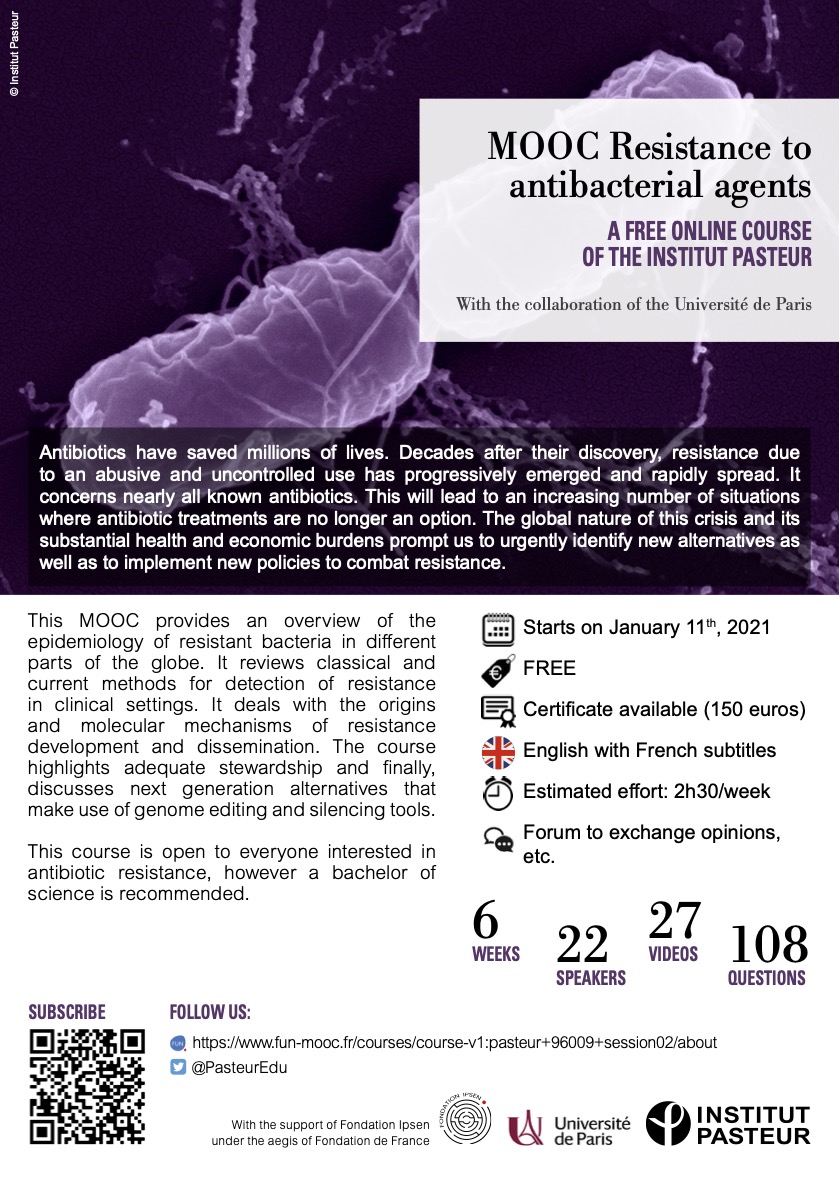
 education
education
Sign up for the "Resistance to antibacterial agents" MOOC, due to start on January 11, 2021
In 2016, the "review on antimicrobial resistance", chaired by Jim O'Neill, estimated that without action, in 2050, 10 million people a year could die from drug-resistant infections. While this figure is hypothetical, the current situation led WHO to classify the emergence and spread of antibacterial agents as an "increasingly serious threat to global public health that requires action across all government sectors and society."
The MOOC "Resistance to antibacterial agents" addresses the major public health problem: of the emergence of multidrug-resistant bacteria isolates, which are responsible for an increase in the morbidity and mortality of a wide range of infections caused by bacteria.
In this course, we intend to provide basic knowledge regarding resistance to antibacterial agents. We address key questions in the field. This MOOC will first present different antibacterial agents and their use for animals and humans. It will describe the current epidemiological landscape of antibiotic resistance across the globe and explain how the resistance is detected in the medical laboratories. The MOOC will then present the origins of antibiotic resistance and its mechanisms of dissemination, before proposing different approaches to control its spread. Finally, this MOOC will highlight the alternatives to antibiotics, the most current molecules in use, and ongoing novel molecule development.
This MOOC, available on FUN website will start on January 11, 2021 and it is aimed at undergraduate, graduate and PhD biology students, medical doctors, teachers, researchers and all those who want to learn how antibacterial agents work and how resistant strains have emerged and disseminated.
